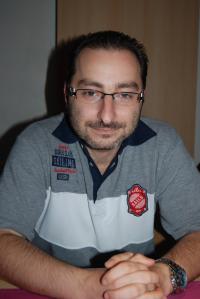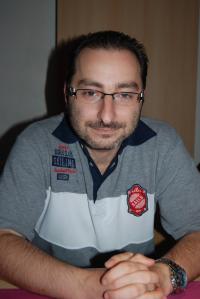We Greeks are schizophrenic, spiritually, we belong there, our bodies belong here.

Stáhnout obrázek
Antonis Epikaridis was born in 1972 in Třinec. His father came to Czechoslovakia from Greece, his mother arrived through Poland, they spoke Greek at home. He visited Greece for the first time in 1979. He considered living in Greece in the Nineties, but they did not acknowledge his education. Nonetheless, he sees Greece as his home. He is single and lives in Třinec.

